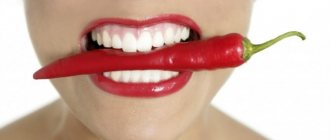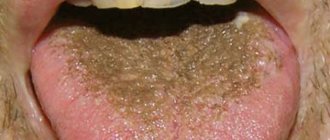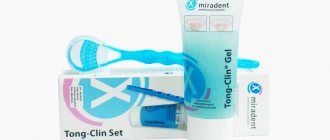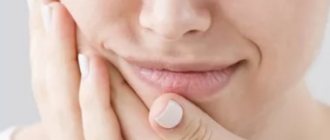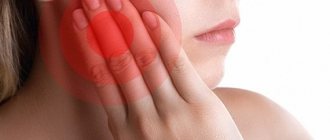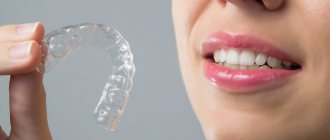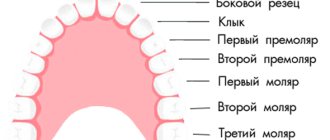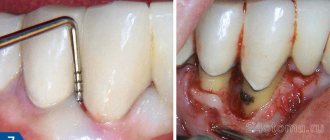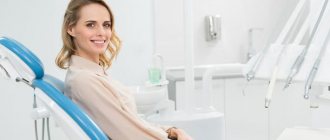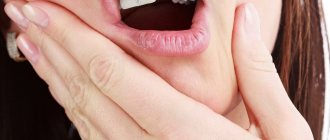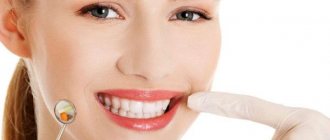Potent antibacterial drugs help fight serious diseases and advanced infections. Unfortunately, taking such medications often has a negative effect on all body systems. Antibiotics have many side effects, including:
- digestive disorders - constipation or diarrhea,
- bitterness or other unpleasant taste in the mouth,
- bloating and increased gas formation,
- nausea, abdominal pain, etc.
Negative reactions from the gastrointestinal tract are caused by the death of beneficial bacteria in the intestines. Strong antibiotics destroy not only infectious agents, but also beneficial microflora, so dysbiosis often develops after treatment. How to remove bitterness in the mouth after antibiotics and restore intestinal microflora? Find out what experts answer to these questions.
Why does the bitter taste appear?
A bitter taste in the mouth appears due to the reflux of the contents of the duodenum into the stomach or esophagus and oral cavity.
This feeling is troubling not only because of gastrointestinal diseases. The reason may be the presence of an infection in the body, exposure to medications, insufficient oral hygiene, during pregnancy, due to a lack of vitamins, an excess of fried heavy foods, alcohol, and coffee drinks. Gum disease is accompanied by a feeling of taste in the mouth due to the growth of bacterial flora. With dentures and poor oral hygiene, bacteria accumulate, multiply, and a bitter taste appears in the mouth.
When taking chemotherapy drugs, antibiotics, or antihistamines, bitterness in the mouth can be a side effect.
Dysgeusia is a taste disorder in which taste perception is altered. Dysgeusia can occur during pregnancy, in smokers, in older people, and in mental illness.
Why does diarrhea occur after taking antibiotics?
The development of complications during antibacterial therapy in the form of diarrhea is associated with a decrease in beneficial microflora, which is involved in a complex of digestive processes:
- breakdown and absorption of nutrients from food;
- evacuation of the contents of the stomach and intestines;
- residual digestion of food;
- removal of toxins and metabolic products;
- secretion and absorption of water in the intestine;
- formation of feces, regulation of their excretion.
Even with standard antibacterial therapy, leading to a slight imbalance, side effects may occur in the form of disruption of intestinal function.
In addition, bacterial infections themselves can contribute to diarrhea, which is the basis for taking antibiotics. The waste products of pathogenic bacteria have a toxic effect, and stool liquefaction may be associated with an increase in body temperature. Antibiotics fight the underlying agent and root cause of the disease, and in many cases they are truly necessary. However, this group of medications can worsen the digestive system.
How to get rid of bitterness in your mouth
Treatment depends on the diagnosis.
If these are diseases of the gastrointestinal tract (gallbladder, pancreas, liver), then the doctor prescribes drug therapy and dietary nutrition. Medicines used include choleretic drugs, antibiotics, antispasmodics for pain, prokinetics for synchronous functioning of the gallbladder and ducts, and sedatives. If bitterness in the mouth appears after eating fatty, fried, spicy foods, then it is necessary to adjust the diet and introduce healthy foods into the diet.
If you have GERD, you must follow some recommendations - do not lie down after eating for half an hour, do not bend over after eating, do not wear tight clothes that compress the stomach, sleep with the head of the bed raised.
Why does the liver suffer?
Approximately every second person undergoing treatment for COVID-19 in a hospital has elevated levels of liver enzymes. Doctors often identify both laboratory and clinical signs of dysfunction of the hepatobiliary system. "Crown" is capable of striking through three main mechanisms:
- Negative impact of the virus. The bile ducts and liver contain special type 2 angiotensin-converting enzymes. They are the main target of COVID-19.
- Excessive immune response. Sometimes a person’s immune system reacts too violently to a viral invasion. It happens that his response turns out to be more dangerous than the symptoms provoked by the disease itself. With an immunological failure, many internal organs begin to function incorrectly. Complications do not bypass the liver.
- Use of hepatotoxic drugs. In case of severe corona, the patient is prescribed antibiotics, antiviral, anti-inflammatory and drugs of other groups. Many of them turn out to be toxic to the organ.
Diet
The diet should include soft, well-chopped food. Gentle cooking methods - steam, bake, boil, stew. Include puree soups and cream soup in your diet. Bread can be consumed dried, yesterday's bread made from first and second grade flour. Meat – chicken, turkey, lean parts of beef, lean fish. Eggs should be in the form of omelettes, steamed in the oven. Food should be warm, not cold or hot. If there is a symptom of bitterness in the mouth, it is necessary to exclude sausages, smoked foods, fatty, fried, canned, and pickled foods from the diet. It is completely necessary to exclude alcohol, spicy foods, coffee, chocolate, carbonated drinks, pork, and some legumes.
Liver recovery after coronavirus infection
The organ is unique. It has the ability to self-heal. Even after a serious defeat, he can normalize his work if a person helps him with this. Basic requirements for the speedy restoration of liver structures:
- Eat a balanced diet. Refractory fats, spices, herbs, alcohol, offal, ice cream, and carbonated drinks are prohibited. A person who is recovering should eat porridge, vegetables, fruits, steamed and boiled meat, cottage cheese, vegetable soups, savory cookies, and a protein omelet. It is also important to drink plenty of clean water.
- Take hepatoprotectors prescribed by your doctor. It is unacceptable to use medications purchased at a pharmacy without medical advice or recommended by friends. This approach to treatment is ineffective and dangerous. The pharmaceutical market offers a wide range of geratoprotective medications. They all have their own side effects, dosages and indications. Only an experienced doctor can determine whether a particular patient needs a particular drug composition.
- Move more. If you no longer need to stay in bed, you should take walks in the fresh air more often. Activity contributes to the stable functioning of hepatobiliary structures.
- Don't overeat. This is the sin of many people who are forced to stay in a hospital for a long time. In order for all internal organs to function normally, it is important to eat four to five times a day in small portions.
- Follow doctor's orders. This is the main condition for a speedy recovery. If the doctor told you to take laboratory tests and undergo ultrasound diagnostics, then that’s what you need to do. By ignoring the doctor's recommendations, a person makes things worse for himself.
If you are sick with coronavirus, be sure to take care of your liver health. Don't ignore the symptoms of inflammation. Then, after discharge from the hospital, you will not have to take hepatoprotectors for a long time.
The functioning of the digestive system, symptoms and consequences of bladder removal
Normally, bile is secreted and flows through the ducts into the duodenum after the action of an irritant, which can be food intake. The rate of secretion depends on the type and quantity of food consumed. When the gallbladder is removed, the ducts ensure continuous delivery of secretions to the intestines, independent of the action of the irritant. A constant supply of the enzyme can cause a number of consequences, among which are symptoms and conditions such as:
- The accumulation of large volumes of digestive juices and their stagnation, causing irritation of the intestinal mucosa.
- Violation of the process of absorption of nutrients.
- Nausea, belching and vomiting in case of reflux of secreted secretions.
- Possibility of damage to the intestinal walls with the release of bile into the abdominal cavity.
- Disturbance of the intestinal microflora, leading to flatulence.
- The appearance of liver or intestinal colic.
- There is a danger of penetration of pigments that make up bile into the bloodstream, which can result in general intoxication of the body.
- Disruption of metabolism and metabolic processes that regulate the supply of necessary substances and fats, associated with damage to muscle tissue in the area surrounding the channels for the passage of bile into the duodenum.
- The development of inflammatory processes and dysbacteriosis associated with disruption of metabolic processes.
- Stagnation of bile, formation of stones and an increase in the likelihood of secondary development of cholelithiasis, the elimination of which in most cases is possible only with the help of surgery.
Depending on the individual characteristics of the disease, the onset of one or more of the listed conditions, called post-chocystectomy syndrome by specialists, is possible.
Surgery and the stress that follows is a normal reaction of the body to a surgical procedure. During the time required to restore the body's functioning, the patient may feel weakness, increased formation of gases, a bitter taste in the mouth and other symptoms.
Indications for gallbladder extirpation
The operation, characterized by trauma, involves making incisions in the peritoneum in 4 places. This procedure is prescribed in rare cases, taking into account not only the high cost of its implementation, pain, discomfort for the patient, but also residual consequences.
These include the need for long-term medication and scars or scars remaining at the surgical site. Nevertheless, there are a number of indications, the detection of which indicates complete or partial dysfunction of the gallbladder or the possibility of potential complications. Among the situations in which cholecystectomy is prescribed, experts include:
Treatment of bitterness with folk remedies
Herbal medicine is appropriate in complex treatment under the supervision of a specialist. Chamomile infusion, flax seed jelly, and corn silk decoction will help get rid of such an unpleasant symptom. Therapy with freshly squeezed juices has proven itself well. For this purpose, potato is used, which activates the intestines and eliminates heartburn, carrot, beetroot, which is effective for diseases of the biliary tract, and cucumber. Juices have a general strengthening effect, help cleanse the organs of toxins and normalize digestion processes.
Purpose of the gallbladder
The organ is a reservoir intended for the accumulation of secretion produced by the liver, which has a greenish or yellowish tint, secreted in a healthy body in an amount of 500-1400 ml/day. The physical composition of bile is presented in the form of cholic, deoxycholic acids, cholesterol, phospholipids, trace elements, enzymes, urea and vitamins. Among the functions performed by the secretion, experts name:
- The action of acids that ensure the release of pancreatic juice necessary for the digestion of food.
- Ensuring neutralization of the acid reaction of the stomach contents before the components enter the duodenum.
- The emulsifying effect of acids on fats, providing the possibility of their subsequent digestion by lipase, which is part of the secretion secreted by the pancreas.
- Pepsin binding occurs with the help of proteins that make up bile.
- Ensuring partial or complete removal of medications from the group of sulfonamides, salicylates, and alkaloids.
After extirpation of the gallbladder, the normal course of the digestive process is disrupted, to compensate for changes in which the use of medications is recommended.
Recommended medications after bladder removal
To minimize the consequences and eliminate the occurrence of complications after cholecystectomy, the patient must follow the recommendations of a specialist during the recovery period, which, according to gastroenterologists, takes from 1 to 3 months. During this time and, if necessary, during subsequent life, the patient is recommended to take medications that provide:
- normalization of bile production and outflow;
- relief of pain symptoms;
- relaxation of smooth muscles during spasms that occur during the release of secretions into the intestines;
- breakdown of food upon receipt after surgery of insufficient bile.
Self-prescription of drugs should be excluded, since their use may not only not lead to the desired result, but also provoke complications.
Painkillers
Since experts call pain among the most common symptoms of postcholicystectomy syndrome, antispasmodics are used to relieve such manifestations and improve the functioning of the gastrointestinal tract.
